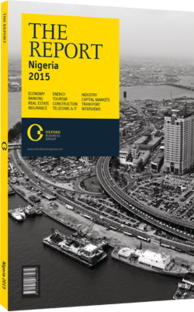Air transport in Nigeria has significant potential for expansion
Despite having the continent’s largest economy and population, and a location at the crossroads of West and Central Africa, Nigeria has yet to capture what some would argue is its rightful position as an aviation hub. As existing airports are overhauled and new terminals constructed, this will change. However, demand-side inhibitors, such as the lack of a national carrier, high airline fees and limited open-skies access must be addressed if the country is to fulfil its potential.
Continental Gap
Nigeria certainly has catching up to do with the likes of South Africa, Kenya, Ethiopia, Morocco and Egypt – five countries with Africa’s largest national carriers with international routes and whose airports in turn service hub-and-spoke traffic across the continent. Yet Africa as a whole is under-represented when it comes to indigenous airline capacity. Non-African carriers handle 80% of continental traffic, and it is still common for passengers to connect via Europe when flying between two African destinations.
The top European, Gulf and North American airlines have secured landing rights into Nigeria, mainly through Lagos, which accounts for 75% of international arrivals. For many, Nigeria is proving to be one of their most profitable and best-performing routes by load factor, as they benefit from a steady and less price-sensitive corporate base. It is believed, for example, that British Airways makes more money flying three times to Lagos than it does operating 10 flights to New York.
Carriers
Nigeria, with its sizeable population and projected aviation growth, is perhaps an exception to the argument that for economies of scale, West Africa needs fewer rather than more national carriers. Each year Nigeria loses potential earnings from non-serviced routes to foreign airlines. Since state-owned Nigerian Airways ceased operations 2003, followed by Air Nigeria in 2012, the government has pursued financial backers and technical partners to relaunch a new national carrier. The government hired KPMG to identify potential strategic partners, shortlisting South African Airways, Ethiopian Airlines and Lufthansa in early 2015.
At present, the privately owned Arik Air and the statecontrolled Aero Contractors are the two main local carriers, both of which are facing concerns over unpaid debts. Other carriers operating in the country include Med-View Airline, Dana Air and Overland Airways. Arik Air operates a fleet of 26 aircraft and serves 16 domestic routes from Abuja and 12 from Lagos. While its regional network is concentrated around West and Central Africa, it is seeking to expand its footprint into the north and east of the continent to take on Kenyan Airways and Ethiopian Airlines. Its long-haul routes include London, New York and Johannesburg, and it started flights to Dubai in July 2014. Arik is reported to be in discussions to purchase $300m of new fleet, with funding lined up from the Brazilian Development Bank.
Aero Contractors, meanwhile, operates a fleet of 15 aircraft serving 13 domestic routes, as well as Accra. West African routes are likely to see more competition in the near term, with Med-View Airlines’ inaugural flight to Accra in September 2014, and Dana Air announcing plans to launch commercial flights into West Africa by the second quarter of 2015.
Open Up
The African Union agreed in principle to an open-skies policy in 1999, though this has yet to happen on a regional level, limiting available flights and keeping costs relatively high. International Air Transport Association studies have concluded that open skies would contribute $128m per year to Nigeria’s GDP and lead to the creation of more than 17,000 jobs.
A lack of domestic competition also contributes to high fares, though local airlines contend this has more to do with high operating and input costs. According to Arik Air, for a $140 economy fare ticket on a 75-minute flight between Lagos and Abuja, more than half the price goes to taxes and fees. Low competition has also contributed to poor service, with the Civil Aviation Authority receiving around 50,000 complaints per year. To that end, a new Passenger Bill of Rights was passed in 2013, requiring compensation for delayed and cancelled flights, lost luggage and other performance metrics.
You have reached the limit of premium articles you can view for free.
Choose from the options below to purchase print or digital editions of our Reports. You can also purchase a website subscription giving you unlimited access to all of our Reports online for 12 months.
If you have already purchased this Report or have a website subscription, please login to continue.

